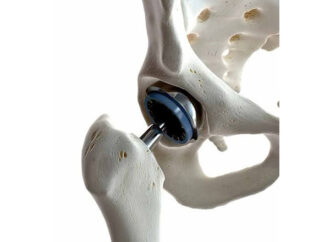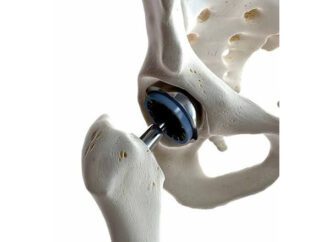Recovering from a major procedure like hip replacement surgery requires attention, preparation, and teamwork. How do you get ready for recovery? What hurdles should you expect? Will you need someone to assist you afterward? These are all important considerations that involve coordination between your healthcare team, your family, and yourself. Dr. Gaurav Gupta, a Joint
Recovering from a major procedure like hip replacement surgery requires attention, preparation, and teamwork. How do you get ready for recovery? What hurdles should you expect? Will you need someone to assist you afterward? These are all important considerations that involve coordination between your healthcare team, your family, and yourself. Dr. Gaurav Gupta, a Joint Replacement Surgeon from Jhansi with expertise in robotic joint replacements, shares his insights on what to expect during recovery and how to make the process smoother.
When can I go home after a hip replacement?
“Typically, patients can begin walking just a few days after the operation and are often cleared to return home shortly after,” says Dr. Gaurav Gupta. Complete bed rest is rarely necessary. In fact, movement is encouraged early on as it speeds up the recovery. However, if a patient has other health concerns such as heart or lung conditions, has undergone a particularly complex surgery, or lacks assistance at home, they may require a longer initial recovery period in bed or under supervision.
Will I need to use a walker at first?
The decision to use assistive devices like walkers is based on how stable you feel and your ability to walk safely. Your care team—which includes your surgeon, physiotherapist, and general physician—will assess this. You may be advised to use a cane or walker for added stability, especially if you feel unsteady. However, these aids are not automatically needed for all patients.
When will my hip incision heal?
“The incision for hip replacement today is usually small and heals relatively quickly,” Dr. Gaurav Gupta explains. The area is covered with a sterile dressing and takes about six weeks to fully heal. To avoid the risk of infection, you should hold off on taking baths until the wound has closed—generally around two weeks post-surgery.
How soon does rehabilitation start after the hip surgery?
“Rehabilitation begins even before the surgery, through a program of physical therapy that continues immediately after the procedure,” says Dr. Gupta. Patients begin moving and performing gentle exercises in the hospital itself, guided by a physical therapist, and continue this work at home after discharge. Early goals focus on reintroducing normal activities like standing from a chair or getting out of bed. Gradually, the exercises shift toward more demanding tasks like climbing stairs or entering a car. Building strength, especially in the hip and leg muscles, is crucial, and resistance training becomes a key part of the recovery regimen.
Hip and Knee Replacement at Jhansi Orthopaedic Hospital
At Jhansi Orthopaedic Hospital, the Hip and Knee Replacement program is run by experienced specialists who guide patients from start to finish. From educating patients before surgery to supporting them through post-surgical recovery and physiotherapy, the goal is to make sure every person regains independence and returns to their routine as quickly and safely as possible.
What is considered a “normal” amount of pain after a hip replacement surgery?
Post-surgical pain and swelling around the joint are expected and normal. Dr. Gupta recommends giving your body time to rest between therapy sessions, applying ice to the area, and taking doctor-approved anti-inflammatory medicines. Keeping your leg elevated above heart level while lying down can also ease the swelling. Be sure to monitor your discomfort. If your pain level is consistently above a 6 out of 10, let your doctor know, as this may be a sign of complications like infection. As therapy progresses, your pain should gradually lessen and be minimal (around 1 or 2) by about three months post-surgery.
How long does it take to recover after a hip replacement?
“Most patients recover within two to four weeks,” notes Dr. Gupta. However, the speed of recovery depends on individual factors like age, general fitness, existing medical conditions, diet, and how active a person was before surgery. Dr. Gupta recommends pre-surgical conditioning, or “prehabilitation,” to help patients get into better shape ahead of surgery. This can significantly improve recovery outcomes and speed up healing.
How soon can I return to regular activities after a hip replacement?
The main objective of recovery is to help patients resume their everyday lives—whether that means returning to work, playing with grandchildren, or enjoying hobbies and sports. The time it takes to get back to these activities varies based on how physically demanding they are. For driving, patients who had surgery on the right hip might need to wait about four weeks. Those with surgery on the left hip could resume driving in as little as one to two weeks, starting in safe areas like parking lots and gradually transitioning to busier roads. Be mindful of medications like opioids, which can impair coordination and may delay your return to driving.
If your job is mostly sedentary, like a desk job, you may return in about two weeks. For physically demanding roles involving lifting or extensive movement, about six weeks of recovery is advised. Sports can generally be resumed after six weeks, once the surgical wound is fully healed. Swimming, in particular, should be avoided until the incision has closed. When it comes to resuming sexual activity, it’s safe to proceed once you feel physically ready and comfortable.
What could slow down my recovery?
Dr. Gupta explains that complications such as infections, fractures near the implant site, and dislocations can delay the recovery process. Warning signs include fever, drainage from the incision, difficulty moving the hip, or persistent severe pain that doesn’t respond to medication. In such cases, medical attention should be sought immediately. Moving carefully and following the prescribed rehabilitation plan helps lower the risk of these setbacks. Avoiding abrupt or awkward movements is also key to preventing falls and dislocations.
How long will my hip replacement implant last?
Unlike older implants that were primarily metal and wore out more quickly, modern implants use a mix of ceramic, plastic, and metal components. These materials are more durable, resulting in longer-lasting replacements. According to Dr. Gupta, most hip implants today can last between 20 to 30 years, with a low chance of failure or the need for a second surgery.
How long after replacing one hip should I wait to replace the other?
“For patients with advanced arthritis in both hips, replacing both joints at the same time can be an option,” says Dr. Gupta. Known as bilateral hip replacement, this approach may offer faster recovery in some individuals, although it requires more effort during rehab, since both legs need strengthening. Mobility at home may be more challenging in the early days, so having adequate support is essential. If you opt for separate surgeries, doctors typically recommend waiting at least six weeks between procedures to reduce the chance of blood clots and allow for adequate recovery from the first surgery.
Visit us on www.docgauravgupta.com, www.joh.co.in















